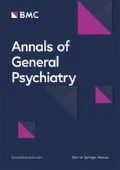Background
The present pilot study was the adaption of receptive and expressive language tests' (ROWPVT and EOWPVT) for Greek children aged from 6 years till 11 years and 11 months, and to locate any differences between receptive and expressive language.
Materials and methods
The commercial versions of the tests were adapted in Greek language by a linguist, three speech language therapists and 2 native speakers of Greek language, having proficiency in English, and two native speakers of English having proficiency in Greek, and changes were contacted, for the best representation of the Greek version. In this research took part 615 participants (m: 310, f: 305) recruited from Greek Schools. The sample was independent from origin and socio - economic situations. Also an ENT, neurological and a psychological examination were also requested, so no medical problems could probably influence the test results.
Results
Statistical analysis of the data revealed that the results obtained are generally consistent to other results reported. No statistically significant differences were found according to sex. Also reliability and validity test were contacted and showed high criterion (a - Chronbach = .823, & .834).
Conclusions
The test appears to be sensitive for school aged Greek population and presents satisfactory criterion, internal consistency, temporal stability, interrater reliability, high content validity. The participants demonstrated clear patterns of responses but in some ages differences were located between expressive and receptive language. Further research must be done, to exclude or include any adaptation, learning or developmental reasons.
Author information
Authors and Affiliations
Rights and permissions
Open Access This article is published under license to BioMed Central Ltd. This is an Open Access article is distributed under the terms of the Creative Commons Attribution 2.0 International License (https://creativecommons.org/licenses/by/2.0), which permits unrestricted use, distribution, and reproduction in any medium, provided the original work is properly cited.
About this article
Cite this article
Dionysios, T., Bergadi, A., Gkrekou, X. et al. The Expressive and the Receptive One Word Picture Vocabulary Test (EOWPVT & ROWPVT). (A combine pilot study in Greek school aged children & data for expressive and receptive language for this population). Ann Gen Psychiatry 9 (Suppl 1), S193 (2010). https://doi.org/10.1186/1744-859X-9-S1-S193
Published:
DOI: https://doi.org/10.1186/1744-859X-9-S1-S193

